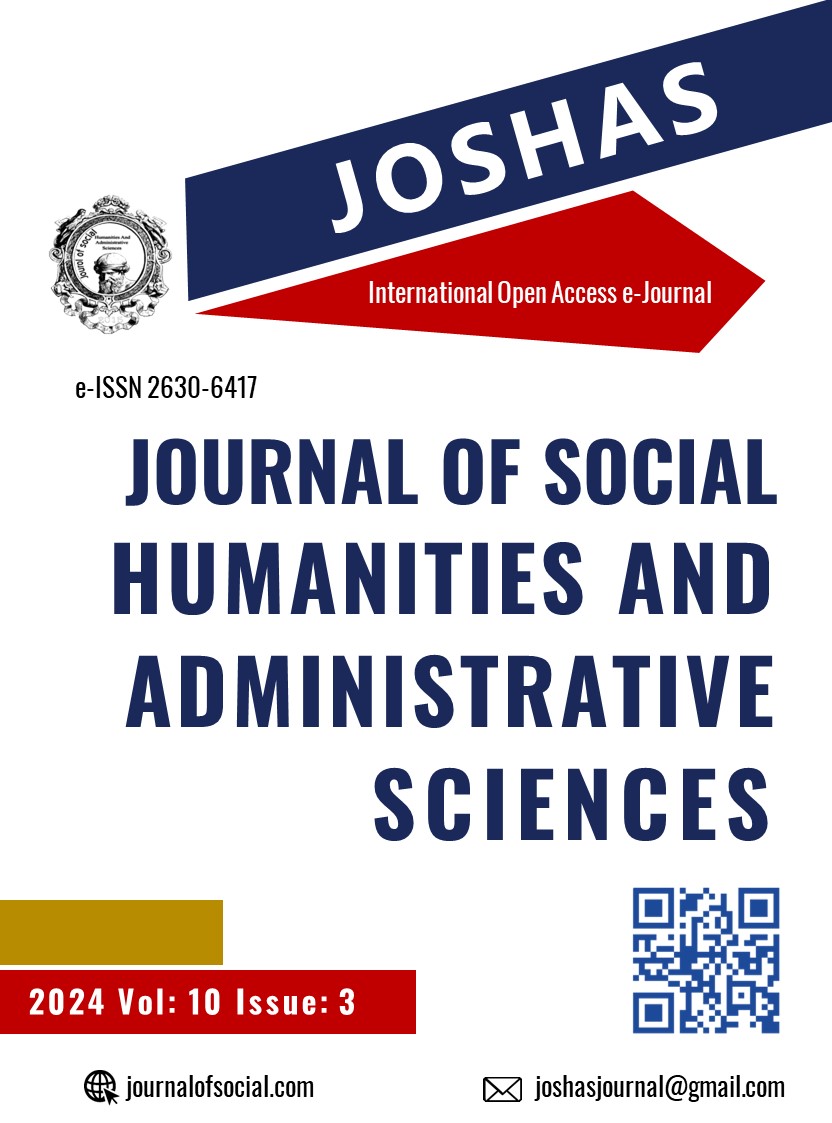Author :
Abstract
Milliyetçilik 1789 Fransız Devriminde İmparatorlukların sona ermesiyle ortaya çıkmış, zamanla etkisini arttırmış, modern bir düşüncedir. İmparatorluklar zamanında “millet” kavramı bulunmamaktadır. Farklı dillere, farklı etnik yapılara, değişik inançlara sahip gruplar imparatorluklar içerisinde imparatora itaat ederek yönetilmekteydiler. Yönetimde söz sahibi olmak isteyen bu grupların varlığı “millet” kavramını ortaya çıkarmıştır. Millet kavramı içerisinde dil, etnik yapı, mitler, din, tarihsel geçmiş vb. değişik özellikler yer alabilmektedir.
Milliyetçilik düşünürlerce “seküler din” olarak tanımlanmış ve ulus devlet yapısı içerisinde değerlendirilmiştir. Yirminci yüzyılda, SSCB ve Yugoslavya’nın dağılmasıyla soğuk savaş dönemi sona ermiş, milliyetçilik rüzgârı bütün dünyada artmış ve yeni ulus devletler ortaya çıkmıştır. Milliyetçilik duygu ve düşüncesi günümüzde bütün ülkelerde belirli oranlarda siyasi, ideolojik etkileri ile güçlü bir fenomen olarak bireylerin kimliklerine yerleşmiştir.
Küreselleşme, kimi düşünürlerce coğrafi keşiflerle başlamış ve o günden itibaren toplumsal etkisini tüm zamanlar boyunca sürdürmüştür. Ortak bir tanımla küreselleşme kavramı, sermayenin ve metanın sınırsız dolaşımını, teknolojik gelişmeler ile ulaşımın, iletişimin hızlandığı, bireyler, gruplar ve ülkeler arasında etkileşimin arttığı dinamik bir süreci ifade etmektedir. Küreselleşmenin ulus devletlerin gücünü azalttığı, bütün dünyada homojen bir kültür (Batı kültürü) oluşturmaya çalıştığı vurgulanmaktadır. Küreselleşmenin bu etkilerine karşı bir tepki olarak milliyetçilik akımları da yoğunlaşmakta, bireyler post-modern yorumla savrulmamak için toplumsal aidiyet duygularını güçlendirerek milliyetçiliğe sarılmaktadırlar.
Toplumsal kimliklerini milliyetçilik ile ifade etmeye çalışan bireyler gündelik hayatlarında küreselleşme olgusunun değişik etkileriyle karşı karşıya kalmaktadırlar. Milliyetçilik, bireyin kendini ait hissettiği milletin ekonomik, kültürel, siyasi, ahlaki tüm alanlarda ileri götürme düşüncesini taşımasıdır. Milliyetçi düşüncesine sahip bireyler gündelik yaşam pratiklerinde bu düşünceleri doğrultusunda davranış gösterip, etkileşimde bulunmayı isterler.
Bu makalede, Millet, Milliyetçilik, Türk Milliyetçiliği, Küreselleşme ve Gündelik Hayat kavramları açıklanmaya ve gündelik yaşamlarında milliyetçilik duygu ve düşüncesine sahip bireylerin, küreselleşmenin kültürü homojenleştirme etkisiyle karşılaştığı pratiklere değinilmeye çalışılmıştır.
Keywords
Abstract
Nationalism is a modern thought that emerged with the end of the Empires in the French Revolution of 1789 and has increased its influence over time. During the time of empires, the concept of "nation" did not exist. Groups with different languages, different ethnic structures, and different beliefs were governed within the empires by obeying the emperor. The existence of these groups that want to have a say in the management, has revealed the concept of "nation". The concept of nation may include various features such as language, ethnic structure, myths, religion, historical past, etc..
Nationalism has been defined as "secular religion" by thinkers and evaluated within the structure of the nation state. In the twentieth century, the Cold War ended with the dissolution of the USSR and Yugoslavia, the wind of nationalism increased all over the world and new nation states emerged. Today, the feeling and thought of nationalism has settled into the identities of individuals as a strong phenomenon with political and ideological effects to a certain extent in all countries.
Globalization started with geographical discoveries by some thinkers and has continued its social impact throughout all times since then. With a common definition, the concept of globalization refers to the unlimited circulation of capital and commodities, a dynamic process in which transportation and communication accelerate with technological developments, and interaction between individuals, groups and countries increases. It is emphasized that globalization reduces the power of nation states and tries to create a homogeneous culture (Western culture) throughout the world. As a reaction against these effects of globalization, nationalist movements are also intensifying, and individuals embrace nationalism by strengthening their sense of social belonging in order not to be swept away by post-modern interpretation.
Individuals who try to express their social identities with nationalism are faced with different effects of the phenomenon of globalization in their daily lives. Nationalism is the individual's idea of taking the nation to which he feels he belongs forward in all economic, cultural, political and moral areas. Individuals with nationalist thoughts want to behave and interact in line with these thoughts in their daily life practices.
In this article, the concepts of Nation, Nationalism, Turkish Nationalism, Globalization and Daily Life have been tried to be explained and the practices that individuals with nationalist feelings and thoughts encounter in their daily lives due to the homogenizing effect of globalization on culture have been tried to be touched upon.





